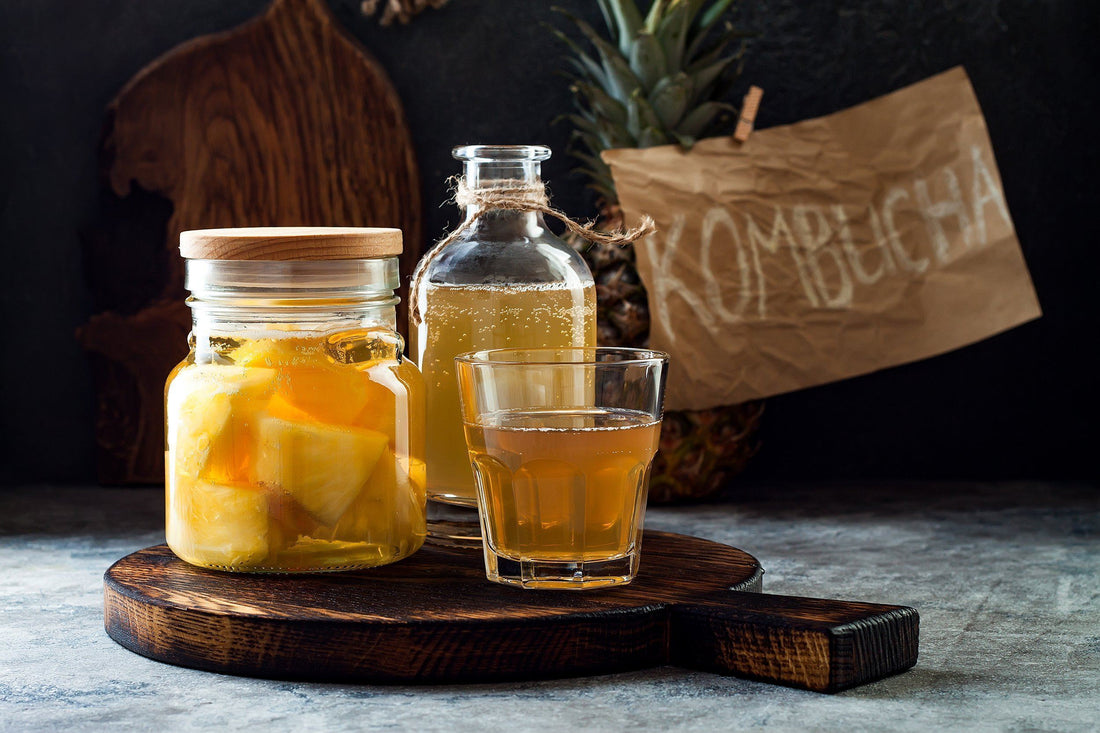What Is Kombucha?
An ancient fermented beverage, kombucha has been around for centuries, if not millennia; no one seems to know its exact origins, but it's believed to have originated in Asia.
Kombucha is made by brewing caffeinated tea, mixing the brewed tea with sugar, and adding a symbiotic culture of bacteria and yeast (abbreviated as SCOBY) to the sweetened tea. It is then allowed to sit for about a month, during which time the bacterial cultures convert the sugar into probiotics. The fermentation process also results in the beverage having a small amount of alcohol present.
Reducing sugar is part of proper nutrition and kombucha does have considerably less sugar than many other beverages, such as fruit juice.
Has Kombucha Been Studied?
Little research has historically been done on kombucha, due to it only hitting the mainstream in the last decade, but more has occurred in recent years. It's been shown to contain antioxidants, as well as live and active probiotics, which makes it a good choice for those looking to add probiotics to their diets.
Probiotics are especially important for children with anxiety because so much of the body's serotonin is produced in the gut. It would seem like a natural match that kombucha would be a smart choice for kids with anxiety. Unfortunately, that isn't actually the case.
Why Kombucha Isn't Good for Kids With Anxiety
You likely noticed two important words above: “caffeinated” and “alcohol.” The SCOBY requires caffeine in the tea in order for the fermentation process to occur. Some caffeine is lost in the fermentation process, but bottled kombucha does contain caffeine—typically about one third the amount of the tea it was brewed with. Since most kombucha is brewed with black tea, which has more than green or white, that could be in excess of 50 milligrams per bottle. If your child is dealing with anxiety, caffeine can lead to increased anxiousness or exacerbation of other emotional symptoms. Additionally, caffeine can interrupt sleeping patterns, and adequate sleep.
Alcohol is also a no-no here. Alcohol content ranges, with some brands at only a fraction of a percent and others requiring purchasers to be over 21 years old. Whatever the percentage, alcohol isn't a functional substance for children in general, let alone any children dealing with mental wellness challenges.
Safe Alternatives to Kombucha
If you liked the idea of a probiotic beverage for your child, you have other options. Kefir is a non-caffeinated drink made without tea; it begins with kefir grains that eat the sugars in milk, and it is available both in dairy and non-dairy versions. There is even kefir sold as a fruit drink, which isn't creamy at all but is instead similar to kombucha in carbonation. Thanks to kefir, you can still give your child with anxiety a probiotic beverage that is beneficial to their digestive system.


 Improve focus and clarity.
Improve focus and clarity.


